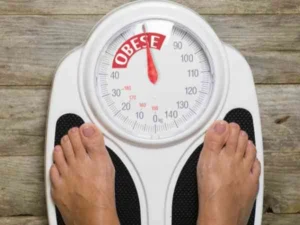Should you eliminate salt and sugar from your diet
Salt and sugar play an important role in the smooth functioning of the body. Salt is a mineral, which is required to maintain fluid levels and acid-base balance, conduct nerve impulses and regulate muscle contractions. On the other hand, sugar is a form of carbohydrate and a good source of energy for our day-to-day activities.
However, there is no denying that excess salt and sugar consumption is linked to adverse health outcomes. But, it is all right to add the recommended amount to your diet, said Shivani Baijal, senior executive nutritionist, Cloudnine Group of Hospitals, Gurugram.
“People are often unaware of the amount of salt and sugar they consume because they usually do not keep a tab on their consumption of processed foods and preservatives. The salt recommendation for healthy adults by the World Health Organization (WHO) is less than five grams (1 teaspoon)/per day. For children, it is between two to 15 years, it is less than for adults and depends on their energy needs. Free sugar intake is recommended at 5-10 percent of the total calories. Salt can come into the diet from processed foods like ready-to-eat meals, noodles, and cheese, salty snacks like chips and mixtures, processed meats like bacon, ham, salami, etc, or through preservative-laden foods such as pickles, jam, jelly, sauces, etc. Similarly, free sugar can be added to gravies, sodas, shakes, concentrated fruit juices, candies, sugary snacks, etc. she explained.

Some tips to control excessive intake:
Avoid using table salt shakers at the dining table.
Watch, read, and analyze food labels before buying the product.
Limit salty snack consumption.
Prefer home-cooked meals over ready-to-eat meals.
Limit processed and preservative-laden foods in your diet.
Added sugar has no advantage, so avoid adding sugar to beverages and other foods. Rather prefer eating whole fruits to satisfy your sugar craving.
Avoid refined white sugar and replace it with healthy substitutes like nuts, raisins, figs, munakka, organic jaggery, honey, coconut sugar, etc.
Eat small frequent meals to avoid sugar cravings.
How much sugar do you have every day?
The salt and sugar recommendation by WHO is for all individuals, including pregnant and lactating women. “But during pregnancy, if you are under high-risk concerns such as GDM (gestational diabetes) or PIH (pregnancy-induced hypertension) requirements will vary. As simple sugar consumption is not suggestive of diabetes, salt intake should be curtailed by those with high blood pressure. People on drugs like diuretics or steroids and with conditions like kidney disease, heart disease, and liver disease, also need to be mindful,” she said.
“Therefore, rather than eliminating salt and sugar totally from your diet, it is recommended to include it in a prescribed amount for getting optimum. However, before making any major dietary changes, make sure that you consult a qualified nutritionist or dietician,” she suggested.
For more Health News, follow us on Google News | Twitter | Facebook, and don’t miss out on the latest updates.
This article is taken from Indian Express.







